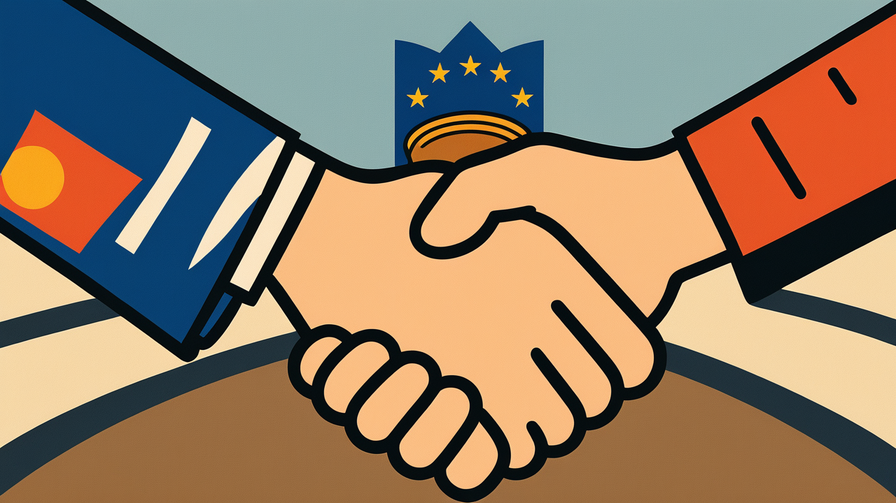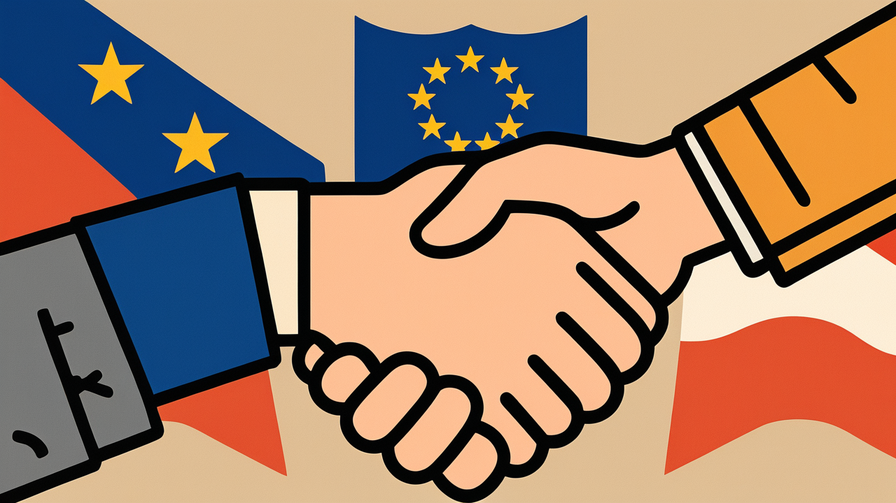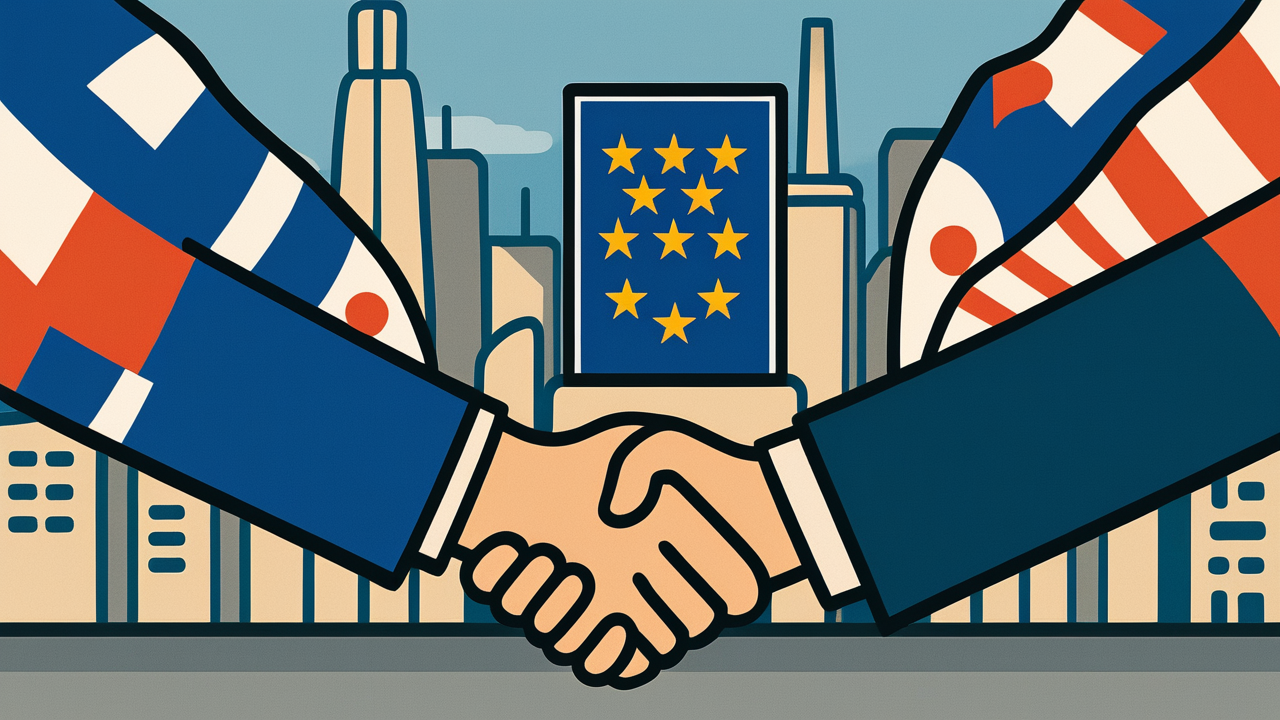[Disclaimer] This article is reconstructed based on information from external sources. Please verify the original source before referring to this content.
News Summary
The following content was published online. A translated summary is presented below. See the source for details.
The Leaders of the European Union and Japan held their 30th EU-Japan Summit in Tokyo on July 23, 2025, marking three decades of formal partnership between these two major democratic powers. This milestone summit brought together top officials to discuss critical issues facing both regions, including economic cooperation, climate change response, technological innovation, and maintaining democratic values in an increasingly complex global landscape. The summit demonstrates the deepening relationship between the EU and Japan, which has evolved from basic trade discussions to comprehensive cooperation on security, digital transformation, and sustainable development. Leaders emphasized their shared commitment to international law, free trade, and addressing global challenges together. The meeting takes place during a time of significant global uncertainty, making the EU-Japan partnership increasingly important for maintaining stability and promoting shared values of democracy, human rights, and rule of law.
Source: European Commission Press Corner
Our Commentary
Background and Context

Imagine if your two best friends from different friend groups decided to work together on projects for 30 years – that’s what the EU-Japan partnership is like! The European Union (27 countries working together) and Japan have been meeting regularly since the 1990s to figure out how to help each other succeed.
Why does this matter? Together, the EU and Japan represent about 25% of the world’s economy – that’s like controlling one quarter of all the money and business in the world! They’re both democracies that believe in similar things: free speech, fair elections, and protecting the environment.
These summits happen because even though Europe and Japan are far apart, they face similar challenges: aging populations, need for new technology, and concerns about climate change.
Expert Analysis
The 30th summit is especially important right now. With tensions between the US and China, and Russia’s war in Ukraine, medium-sized powers like the EU and Japan need to work together to keep the world stable and peaceful.
Think of it like this: if the biggest kids in school are fighting, the other students need to team up to keep things calm and make sure everyone follows the rules. That’s what the EU and Japan are doing on a global scale.
Key areas where they cooperate include making computer chips (semiconductors), fighting climate change, and ensuring fair trade rules. They also work together to promote democracy and human rights around the world.
Additional Data and Fact Reinforcement
Here are some impressive facts about EU-Japan cooperation:
• They trade over €150 billion worth of goods each year
• The partnership affects 635 million people (EU + Japan populations)
• Over 30,000 Japanese companies operate in Europe
• More than 3,000 European companies have offices in Japan
• Student exchange programs allow thousands of young people to study in each other’s regions
Related News
This summit connects to other big global events. Both the EU and Japan are working on becoming carbon neutral by 2050, meaning they want to stop adding greenhouse gases to the atmosphere. They’re also both investing heavily in artificial intelligence and green technology.
The partnership has become more important as both face similar security concerns. Japan recently increased its defense spending, while the EU is developing its own defense capabilities. However, their cooperation focuses on economic and technological areas rather than military alliance.
Summary

The 30th EU-Japan Summit shows how countries can work together peacefully to solve problems and create opportunities. For young people, this partnership creates chances to study abroad, work for international companies, and be part of solving global challenges like climate change. As the world becomes more connected, understanding these international partnerships helps students prepare for careers that might involve working with people from different countries and cultures. The EU-Japan model proves that cooperation beats competition when facing big challenges.
Public Reaction
Business leaders from both regions celebrate the partnership, seeing more opportunities for growth. Environmental groups praise joint climate commitments. Young people are excited about increased exchange programs and job opportunities. Some critics worry about too much focus on economics over social issues, but overall, the partnership enjoys strong public support in both regions.


